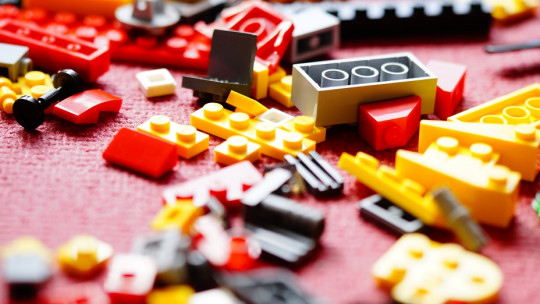
Sleep is a necessity. If we want to perform physically and mentally the next day, it is necessary that we have enjoyed a good sleep the night before. Only by having good sleep hygiene can we wake up rested and full of energy.
But in addition to recharging our sleep, it can be our best ally to consolidate the learning we have done the previous day. Getting a good night’s sleep every night can be the factor that guarantees our academic success.
Why does sleep help us learn? Apparently, when we sleep we do nothing more than rest but, in reality, our brain continues working and in a way that is very beneficial to us. Let’s find out below.
How does sleeping contribute to learning?
No one doubts that sleep is a basic vital function. Sleeping our 8 hours recharges our batteries, giving us all that energy that we have lost throughout the day.
Thanks to the fact that we disconnect at night, our body carries out a whole series of processes that make our body recover everything it spent the previous day. A good sleep makes us wake up rested, making us physically and mentally prepared for whatever the day ahead has in store for us.
Many people see the act of sleeping as synonymous with the most absolute physical and mental inactivity However, although consciousness turns off during sleep, our brain continues working and it is thanks to this brain work that while we sleep this helps us learn better. In addition to making us wake up the next day with greater concentration and more clear-headed, sleeping makes our brain work actively consolidating the learning that has been done during the previous day.
When we sleep, neural connections are formed, which explains why knowledge is better established while we are sleeping, as long as that sleep is of good quality. New dendritic spines are created, especially in the non-REM, short-wave sleep phase, which is a deep sleep that occurs during the first hours of the night and in which dreams are not generated.
Since sleeping helps to better assimilate the knowledge learned, Acquiring a good sleep pattern should be key for students of any educational level especially in secondary school, pre-university and university, since it is the students at these three levels who are most likely to stay up late before an exam.
It should be essential for these students avoid late night study sessions especially because of how they affect the quantity and quality of subsequent sleep, if they sleep at all.
The importance of sleeping well to internalize knowledge
Although it is not a secret that sleeping well positively influences our cognitive capacity, many students do not appreciate the importance of good sleep hygiene and its relationship with performing better in the face of academic demands. Not only do they not get enough sleep, but they do things that make it even more difficult to fall asleep, such as abusing screens, drinking huge amounts of caffeine, and studying at the last moment of the day.
As we have mentioned, sleep not only provides us with the physical and mental rest we need after a whole day consuming our resources. In addition to this, sleeping allows us to consolidate the knowledge that we have been learning throughout the day. Sleeping well helps us learn what we have seen during the previous day. Despite this, there are many students who trust that depriving themselves of a night of sleep and cramming will help them in the next day’s exam. Big mistake.
Even if we stop paying attention to something we are learning, the brain does not stop working on it, processing it Our brain carries out several activities to consolidate this new knowledge and make it stay in our long-term memory. Although it is true that this process begins from the moment we encode the information, that is, from the moment we have received and understood it, it is during sleep when the consolidation process occurs in the most efficient way.
This consolidation process involves the neuronal reactivation of representations that were encoded during wakefulness, that is, when we sleep we activate the same parts of the brain that were activated when we were learning something, whether in class or reviewing the syllabus. Thus, while we sleep it is as if we were reviewing what we saw hours before, only this time we do it unconsciously.
In addition to this unconscious review, sleeping contributes to our learning connecting recent ideas with others that are more or less distant but have some type of relationship That is, thanks to sleep we are more likely to have “revelations” the next day, associating what we are learning now with syllabi from other subjects and courses or some personal experience that can be related. In short, sleep improves learning and also promotes creativity.
Factors that harm sleep
There are two factors that negatively affect the quality and quantity of students’ sleep and that are directly related to their ability to learn The first has to do with the abuse of new technologies, especially video games and screens, while the second has to do with the consumption of caffeine, the star substance of study sessions and the only one to which Minors have legal access.
Electronics devices
Video games are the most used entertainment in childhood and adolescence and they are also the ones that have been most demonized by supposed experts. There are many stupid things that have been said about this form of leisure, among them that it makes young people violent, impulsive, less intelligent and other fallacies.
All of this is false, however it is worth noting that its use in the hours before going to sleep can affect sleep given that What many video games do is increase alertness and emotionally stimulate Video games can keep us awake and it will be difficult for us to fall asleep.
Another technological factor that has a negative impact on sleep consolidation is the use of screens in general, especially the use of mobile phones. The abuse of screens a few hours before going to sleep has been associated with greater difficulty falling asleep because supposedly if the bright light from these devices is received at night, the nocturnal secretion of melatonin is inhibited, which is the hormone that regulates sleep-wake cycles. The body believes that it is daytime, circadian cycles are altered, making it difficult for us to sleep at night and worsening the quality of our sleep.
Caffeine drinks
Caffeine also affects the consolidation of learning during sleep. It is common knowledge that drinks like coffee, tea or anything that contains caffeine wake us up and make it difficult for us to fall asleep, especially if we drink it in the evening, but in addition and contrary to what many believe, it has negative repercussions on our cognitive abilities.
Caffeinated drinks such as cola, tea, coffee or hot chocolate are products that minors have easy access to. It has been seen that Prolonged consumption causes children to sleep on average 15 minutes less each night which considerably affects your rest and performance the next day.
But in addition to this, the habitual consumption of these substances results in lower cognitive performance, which may even seem counterintuitive considering that the reason for their consumption is usually to “wake up.”
If caffeine is consumed occasionally, it can increase our capacity for alertness and attention. However, if its consumption is habitual, what happens is that it reduces cognitive function. It is not that we become less intelligent the more coffees we drink, but it is that it is more difficult for us to concentrate and pay attention
In fact, there comes a time when in order to have the same concentration that we had before becoming addicted we need to increase the dose of caffeine, since we have generated tolerance and dependence.
It is for this reason that under no circumstances should any caffeinated drink be given to a child because, although it is not a drug like cannabis, alcohol or tobacco, caffeine alters the brain, creates dependency and makes it difficult to be able to. concentrate better they need to take more and more. Furthermore, the vast majority of caffeinated drinks that we find on the market have huge amounts of sugar, another reason why this type of soft drink should not be given to the little ones.
In short, caffeine affects academic performance in two ways. One, which is the best known, is that alters sleep both qualitatively and quantitatively, depriving us of a process that helps consolidate the knowledge acquired in class. The other is that the more consumption, the more dependence is generated, and the more quantity is required to take to have normal attention and concentration.
recommendations
Given all of the above, it is extremely counterproductive for our learning to stay up all night, studying the day before the exam, drinking huge amounts of coffee and staying awake while looking at the notes on the computer screen.
We will be tired but sleepless, We will not give our brain the opportunity to establish connections between the ideas learned and our learning will be very unstructured and they will last very little in our memory.
It is recommended that the study session not be done immediately before going to sleep, even if you intend to sleep at a recommended time (10:00 p.m. to 11:30 p.m.) and even if the study is well dosed. If you want to study a little before going to sleep, it is best to review your notes, not make summaries, diagrams or any cognitively demanding activity because it will keep us awake and that will influence the consolidation of sleep.
Although many people maintain that it is better for them to study at night, the truth is that it is counterproductive. The arrival of the night is the arrival of the end of the day and this is noticeable because we are very tired. We have been expending energy throughout the day and the body notices it, although we do not want to recognize it. We have been awake for almost 16 hours! Studying at night will only delay our sleep, even though we will be tired and that will prevent us from acquiring knowledge.
That is why The best thing to do is leave the study session for the early afternoon, between 4:00 p.m. and 5:00 p.m. Many studies suggest that starting the study at that time, when several hours have passed since we have eaten and it is still light, is perfect to be able to study concentrated. You can try it first thing in the morning, but it is not usually recommended because although we have started the day and, therefore, we are not tired, we are still under the influence of sleep.








